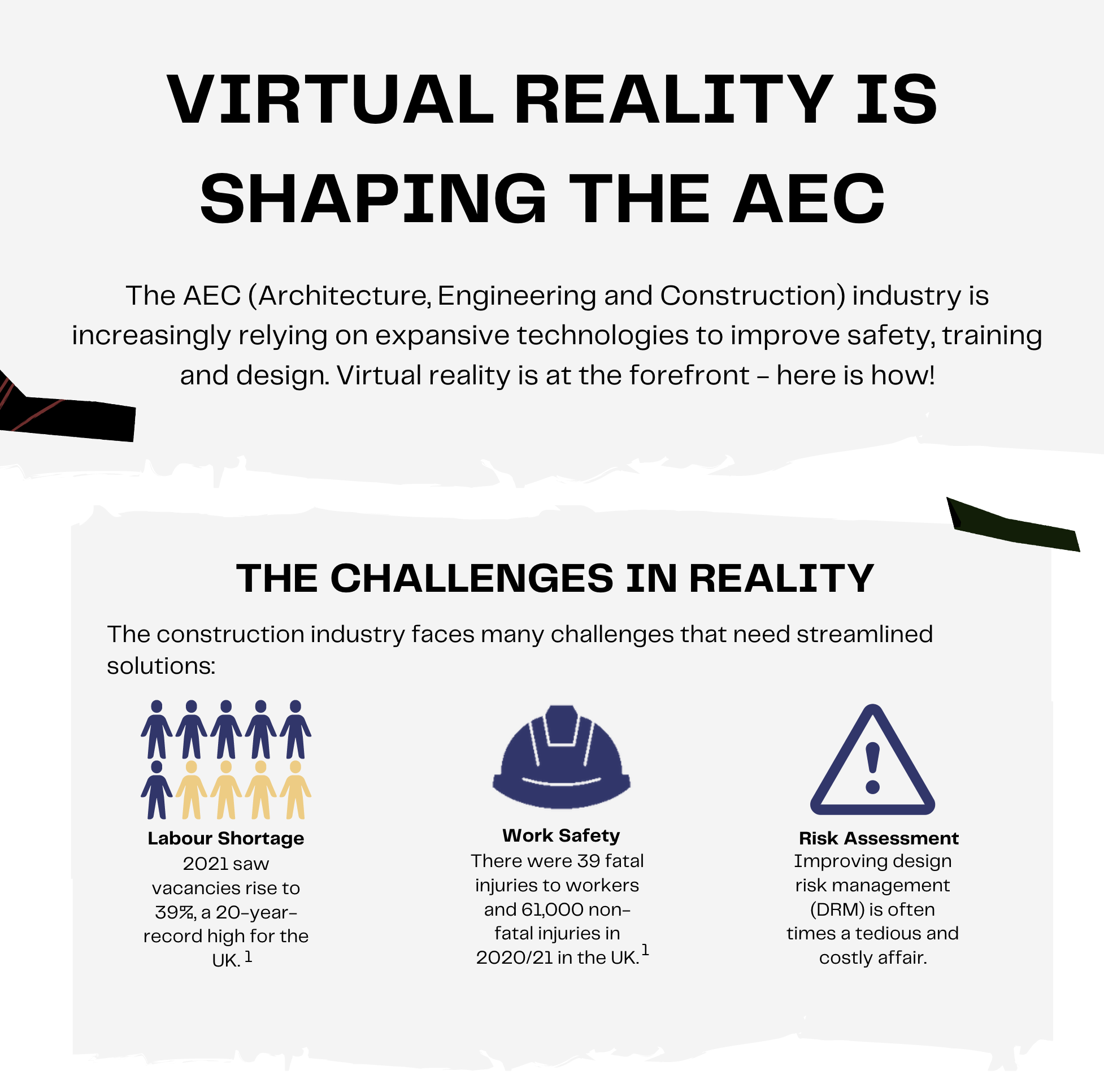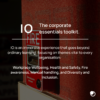
The AEC (Architecture, Engineering and Construction) industry is increasingly relying on expansive technologies such as VR to improve safety, training and design.
The AEC (Architecture, Engineering, and Construction) industry is in desperate need of modernization today. Despite significant advancements in building materials, equipment, and safety measures over the previous few decades, most of the labour remains hazardous, inefficient, and undesirable to new workers.
In the three months leading up to the end of August 2021, construction vacancies reached a new 20-year high – 37,000 vacancies, surpassing the previous 20-year high of 35,000.
In 2020/21, the HSE reported 39 fatal workplace injuries and 61,000 non-fatal workplace injuries. Before the coronavirus pandemic, workers self-reported nonfatal injuries were on the decline.
Many AEC firms have resorted to immersive technologies to solve these problems. Virtual reality was regarded as the most important new technology in the construction sector in a recent poll by ARC Document Solutions.
According to the study, only 7% of businesses use virtual reality in their industry, but 36% of top UK AEC firms are open to incorporating the technology into their operations due to a boost in consumer buy intent and product value.
In recent years, virtual reality technology has evolved dramatically, and forward-thinking construction companies have begun to employ it to breathe new life into an ageing industry. Here is how:
Superior Design Implementation Via VR
There’s no better way to see how a project will turn out than an accurate, complete render viewed with virtual reality technology, no matter how realistic schematics or concept renderings are. Architects and designers are investing in virtual reality technology to help them get the finer details just right.

VR Is A Time-Saving Life Saver.
Construction projects are renowned for being in a perpetual state of flux, making it impossible to plan and stick to schedules; even minor changes on the construction site can cause completion to be delayed by days or weeks. Virtual reality creates 3D models that allow managers to view and adjust to changing conditions in real-time. Early adopters of immersive technology reported a significant impact on operational activity and productivity. According to Capgemini, 82% of businesses say the benefits of their AR/VR programmes match or exceed their expectations, particularly in areas like efficiency and productivity.
VR Cuts Labour Costs
Along with the benefits of virtual reality for building site safety, it can also cut costs on labour. This type of technology can be utilised in conjunction with smart construction machinery, allowing work to be done from the office rather than having numerous personnel on the job. Instead of deploying equipment and operators on the site and simply telling them to dig an area, virtual reality allows site managers to preview the calculations of work areas remotely and safely.

VR Provides A Complete Training Experience
Quality training is essential in such high-risk areas to prepare personnel, improve safety, and reduce workplace accidents. To make such training more accessible and safer for employees, training and safety programmes are being established. Virtual reality training programmes allow trainees to practise operating machinery in a safe setting. It lowers the danger of harm and equipment damage while yet allowing for trial and error.

There’s no denying that virtual reality is gaining popularity, and it’s being used in novel ways in a variety of fields. VR is still in the early adopter stage, with a wide range of applications that could lead to the mainstream. Although virtual reality can be a highly useful tool in the AEC sector and although there has been a lot of investment in it so far, it is still underutilised in the industry.
At MOONHUB, we are convinced that we are building the best training solutions, harnessing the expansive potential of virtual reality to empower your business and your people.








